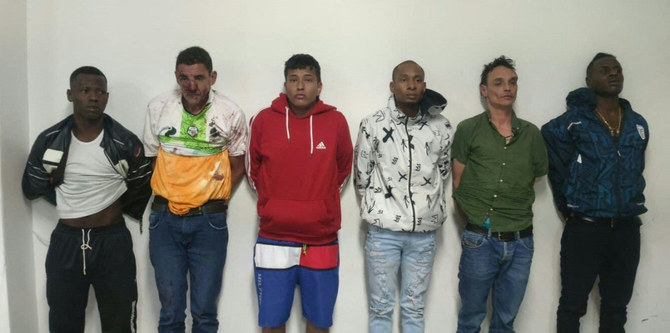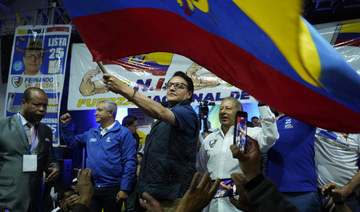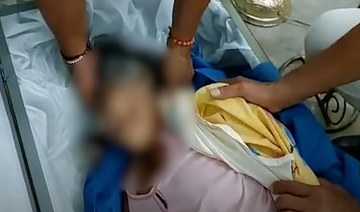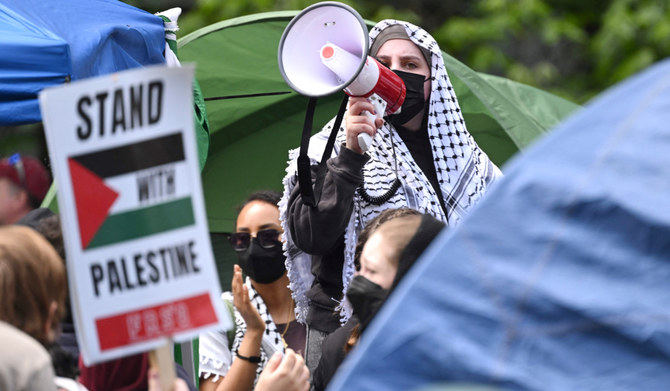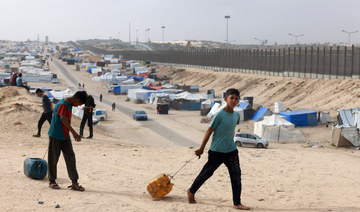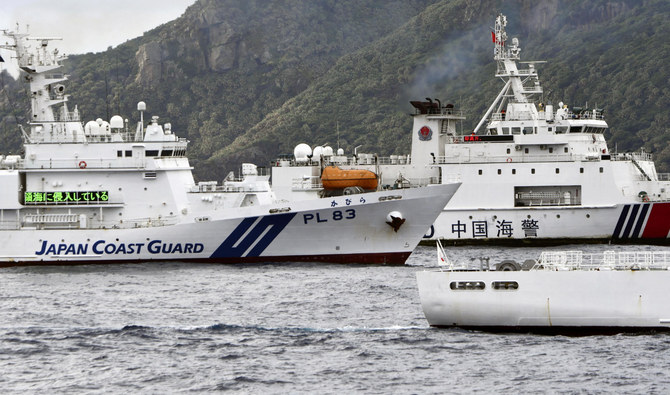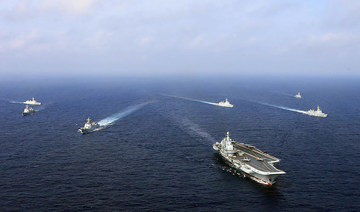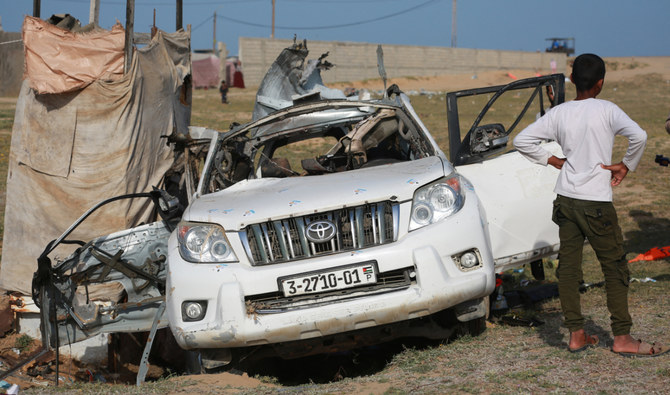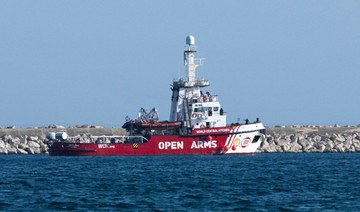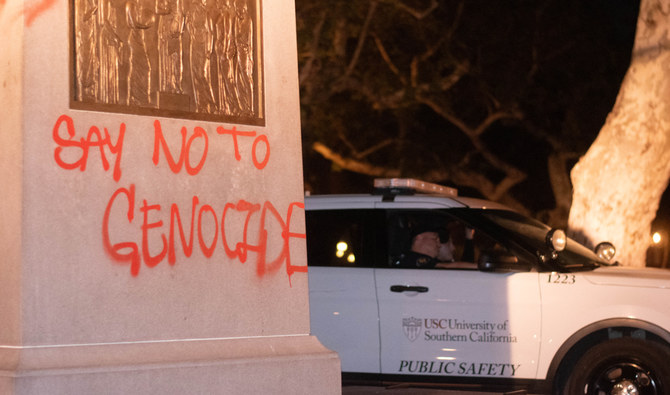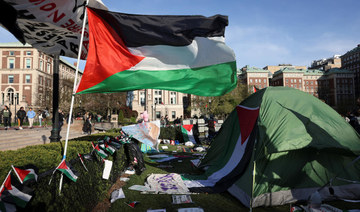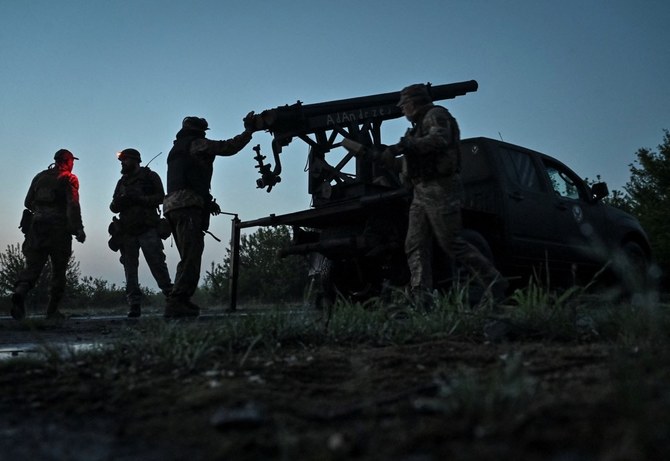QUITO, Ecuador: The six men arrested as suspects in the assassination of an anti-corruption Ecuadorian presidential candidate are Colombian nationals, a police report said Thursday as authorities investigated the motive for a crime that shocked a nation already reeling from a surge in drug-related violence.
The six men were captured hiding in a house in Quito, Ecuador’s capital, said the report, which was reviewed by The Associated Press. Officers also seized four shotguns, a 5.56-mm rifle, ammunition and three grenades, along with a vehicle and a motorcycle, it said.
Fernando Villavicencio, 59, who was known for speaking up against drug cartels, was assassinated in Quito on Wednesday, less than two weeks before a special presidential election. He was not a front-runner, but his death deepened the sense of crisis around organized crime that has already claimed thousands of lives and underscored the challenge that Ecuador’s next leader will face.
Ecuador’s interior minister, Juan Zapata, had earlier confirmed the arrest of some foreigners in the case, although he didn’t give their nationalities.
Zapata described the killing as a “political crime of a terrorist nature” aimed at sabotaging the Aug. 20 presidential election.
The police report doesn’t say whether the Colombians are alleged members of a criminal group. Zapata said those arrested were linked to organized crime, although he didn’t give more details.
Villavicencio had said he was threatened by affiliates of Mexico’s Sinaloa cartel, one of a slew of international organized crime groups that now operate in Ecuador. He said his campaign represented a threat to such groups.
The involvement of Colombian nationals brings to the mind the 2021 assassination of Haitian President Jovenel Moïse, who was shot a dozen times at his private home. Among the people arrested in the case are 18 former soldiers from Colombia.
Video of the rally in Quito posted on social media appeared to show Villavicencio walking out of the rally surrounded by guards. The footage then showed the candidate getting into a white pickup truck before gunshots were heard, followed by screams and commotion around the truck.
The sequence of events was confirmed to AP by Patricio Zuquilanda, Villavicencio’s campaign adviser.
The candidate had received at least three death threats before the shooting and reported them to authorities, resulting in one detention, the adviser said.
“The Ecuadorian people are crying, and Ecuador is mortally wounded,” Zuquilanda said. “Politics cannot lead to the death of any member of society.”
Former Vice President Otto Sonnenholzner, who also is seeking the presidency, bemoaned the loss at a news conference: “We are dying, drowning in a sea of tears, and we do not deserve to live like this.”
The assassins threw a grenade into the street to cover their flight, but it did not explode, President Guillermo Lasso said. Police later destroyed the grenade with a controlled explosion.
One suspect died in custody from wounds sustained in a firefight, the attorney general’s office said. The authorities had reported on Wednesday that six people had been detained, but they didn’t give any details until Thursday.
Lasso suggested the slaying could be linked to organized crime and insisted on proceeding with the election scheduled for Aug. 20. He declared three days of national mourning and a state of emergency that involves deploying additional military personnel throughout the country.
“Given the loss of a democrat and a fighter, the elections are not suspended. On the contrary, they have to be held, and democracy has to be strengthened,” Lasso said Thursday.
In his final speech before he was killed, Villavicencio promised a roaring crowd that he would fight corruption and imprison more criminals.
Villavicencio, one of eight candidates running for president, was the candidate of the Build Ecuador Movement.
As drug traffickers have begun to use the country’s coastal ports, Ecuadorians have reeled from violence not seen for decades. Gunfire is heard in many major cities as rival gangs battle for control, and gangs have recruited children.
Just last month, the mayor of the port city of Manta was shot and killed. On July 26, Lasso declared a state of emergency covering two provinces and the country’s prison system in an effort to stem the violence.
People waiting for buses in Guayaquil, a port city south of Quito that has been the epicenter of gang violence, expressed shock over Villavicencio’s killing.
“It shows that the violence in the country is increasing,” pharmacist Leidy Aguirre, 28, said. “Politicians supposedly have more security than citizens and this shows that not even they are safe.”
Elsewhere, people went about their lives by taking outdoor exercise classes and daily walks because they are resigned to live amid the violence.
Marjorie Lino, a 38-year-old housewife, lamented the danger as she walked with a friend along the main road that leads to one of the country’s most violent neighborhoods.
“To us as women, our husbands tell us not to go out here, but it doesn’t matter (because) when one is going to die, one dies even at the door of one’s house,” she said. She does not believe that any of the presidential candidates will be able to end the violence.
Villavicencio was one of the country’s most critical voices against corruption, especially during the 2007-2017 government of President Rafael Correa.
He was an independent journalist who investigated corruption in previous governments before entering politics as an anti-graft campaigner.
Villavicencio filed many judicial complaints against high-ranking members of the Correa government, including against the ex-president himself. He was sentenced to 18 months in prison for defamation over his criticisms of Correa, and fled to Indigenous territory in Ecuador, later receiving asylum in neighboring Peru.
Lasso, a conservative former banker, was elected in 2021 on a business-friendly platform and clashed from the start with the left-leaning majority coalition in the National Assembly.
A snap election was called after Lasso dissolved the National Assembly by decree in May, in a move to avoid being impeached over allegations that he failed to intervene to end a faulty contract between the state-owned oil transport company and a private tanker company.



